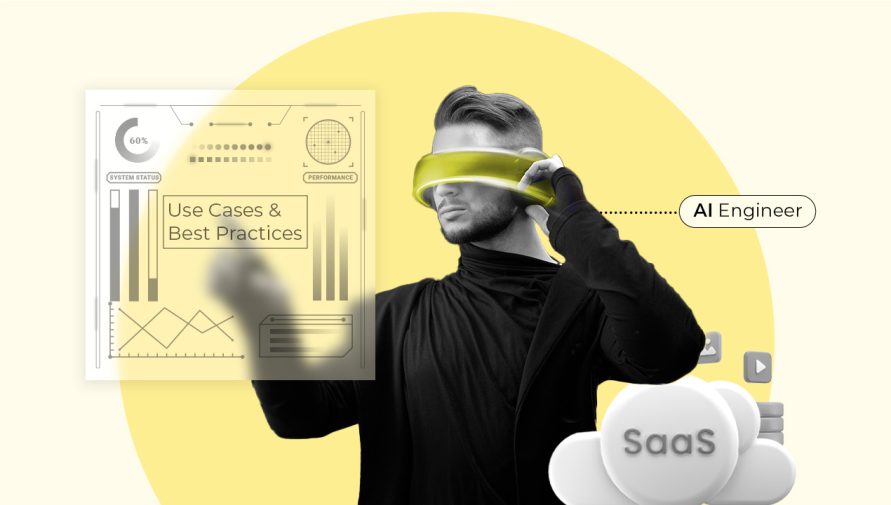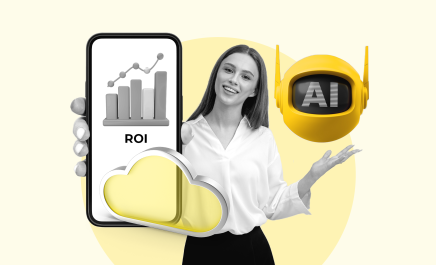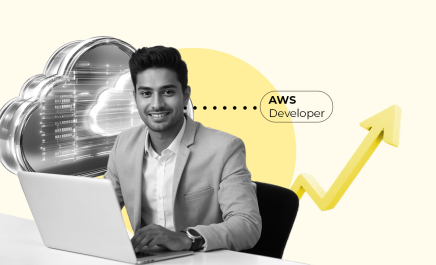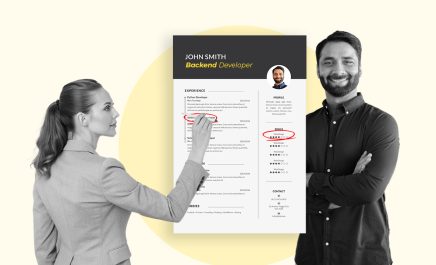How Hiring an AI Engineer is Shaping the Future of SaaS: Transformative Use Cases and Best Practices
- Chetan Chaand
- December 4, 2024
- 5 Minute Read

AI is making SaaS systems more intelligent, faster, and more adaptive. From personalizing user experiences to automating complex processes AI is helping businesses do more with less effort. Behind that transformation are AI engineers.
AI engineers design and implement intelligent features to improve the functionality of SaaS platforms. That’s why top companies hiring AI engineers must adopt new technologies. Their updated knowledge helps them integrate AI smoothly. This puts SaaS solutions at the center of the tech revolution.
In this post, we will discuss why hiring an AI engineer for SaaS platforms is important. We will also look at how top companies can use best practices to find the right engineer for SaaS.
The Role of AI Engineers in SaaS
AI engineers build data-driven solutions that shape SaaS platforms. They create AI technologies to improve platform features and make them more efficient and usable. Hiring an AI engineers will help you create an advanced algorithms and integrate automation. They build SaaS platforms that meet the needs of businesses and users.
Key Skills and Expertise Required
AI engineers contribute both technical knowledge and problem-solving skills to their work:
- Machine Learning and Data Science: They use machine learning techniques to process large data sets. This helps them find patterns and create models. These models support better decision-making.
- Cloud Computing and Infrastructure: AI engineers create secure and scalable solutions on cloud platforms. This helps SaaS platforms manage large workloads with ease.
- Problem-Solving and Analytical Thinking: They study difficult problems and discover new ways to improve performance and results for users.
Transformative Use Cases of AI in SaaS
AI improves user experiences, automates customer support, and strengthens security on SaaS platforms. These applications help companies be more productive and efficient in providing service.
1. Personalizing User Experience
AI customizes content and features for users. For example, AI-driven recommendations suggest products or content based on previous behavior—much like Netflix recommendations. AI can also personalize the interface based on user preferences to increase engagement.
2. Automating Customer Support
AI automates customer support with chatbots and virtual assistants. Such tools take care of inquiries and common problems instantly—24/7 support is available. Artificial intelligence also analyzes customer sentiment in real-time so businesses can understand satisfaction and improve service.
3. Improving Security Measures
Artificial intelligence detects anomalies and prevents fraud. It watches user activity for suspicious behavior or threats. AI also analyzes threats smartly. It finds weaknesses in the system and helps businesses fix them before they become big problems.
Best Practices For Top Companies Hiring AI Engineers
Following these best practices helps businesses attract, hire, and keep top talent in this competitive environment.
1. Creating a Comprehensive Job Description
An accurate job description is essential for hiring remote developer. It should describe the roles and duties of AI engineers. It should also list important skills like machine learning, data science, and cloud infrastructure.
Be sure to mention essential soft skills such as problem-solving, communication, and collaboration. A strong job description helps bring in the right talent and creates a welcoming atmosphere for recruitment.
2. Effective Recruitment Strategies
Find top talent through professional networks and specialist hiring platforms. Sites like LinkedIn, GitHub, and AI-specific communities are great for finding engineers.
Working together with universities and educational institutions may prove useful in finding new talent through internships or campus recruitment programs. Such strategies help businesses reach a broad range of candidates and build a pipeline of talent to hire AI engineers successfully.
3. Onboarding and Continuous Development
It goes beyond recruitment. An efficient onboarding process helps bring AI engineers on board quickly. Hence, as an organization, you must give them training opportunities on new AI technologies and SaaS future trends.
Provide a collaborative environment for engineers to exchange ideas, innovate, and grow. This will encourage ongoing learning, raise job satisfaction, and ensure long-term retention.
Challenges in Integrating AI into SaaS
While AI has huge benefits for SaaS platforms, businesses must still address some challenges to ensure its successful integration.
1. Data Privacy & Compliance Matters

AI requires huge amounts of data to work, so privacy and regulatory compliance concerns often arise. SaaS firms must gather, store, and process user data safely under data protection laws such as CCPA and GDPR. Noncompliance carries legal risk and damages customer trust. To limit these risks, organizations must implement robust data governance policies.
2. Managing AI Model Bias and Fairness
AI model performance depends on the data they are trained on, and the data may be biased. Such biases might produce unfair results, such as inaccurate predictions or discriminatory behavior.
SaaS companies have to build and test AI models on diverse datasets to reduce bias. Regular audits and updates of AI algorithms keep them fair and accurate over time.
3. Ensuring Scalability and Performance
AI systems in SaaS platforms need to scale up with growing data and user interactions without compromising performance. Building scalable AI infrastructure may be complex and resource-intensive. They must invest in effective cloud-based solutions and continuously optimize algorithms for consistent performance across different workloads.
4. Balancing Automation with Human Oversight
AI may automate some processes, but total automation may cause problems. For example, automated decisions without human oversight may overlook judgment-relevant situations. SaaS platforms should balance AI-driven automation with humans performing critical tasks. This hybrid approach guarantees reliability and better user experiences.
Future Trends in AI and SaaS
AI is enabling entirely new possibilities with SaaS platforms. These are key trends that show the future of AI in SaaS platforms:
1. Advancements in AI Technologies
AI’s growth in Natural Language Processing (NLP) and Computer Vision is enhancing SaaS platforms. NLP, in particular, helps these platforms understand human language, boosting the effectiveness of chatbots and virtual assistants.
Computer vision, in turn, allows platforms to analyze images and videos for face recognition and better security features. Such advancements make SaaS platforms better tools for users.
2. Emergence of AI-Powered SaaS Products
New SaaS products have AI as a core feature. They can predict, automate tasks, and adapt to user needs. AI-powered SaaS tools can manage inventory, suggest prices, and improve customer experiences in e-commerce, for example. These smart products keep businesses competitive.
3. Impact on the SaaS Market Landscape
AI is changing SaaS with new features and services. AI-powered companies stand out because they provide personalized/intelligent solutions. However, this also means the industry will need new rules for fair and ethical AI use. AI is expect to become a must-have feature for more providers as more businesses adopt it.
Conclusion
AI is making SaaS applications more intelligent, quicker, and safer. It helps businesses deliver better customer experiences, automate tasks, and protect data.
AI requires skilled AI engineers for companies to make the most of it. These experts create effective solutions for businesses.
Top companies must hire AI engineers with the right skills. This is important for shaping the future of AI in SaaS platforms. It is also key to succeeding in a competitive market.
Frequently Asked Questions
What is the role of an AI engineer for a SaaS company?
Ans: AI engineer develops and implements AI solutions within SaaS platforms. They build machine learning models, integrate AI-driven features, and optimize the platform for better performance and experience.
What challenges might arise when integrating AI into SaaS products?
Ans: Privacy and compliance issues, bias in AI models, and scalability problems are challenges in integrating AI into SaaS products. Balancing automation with human input is also important.
How does AI contribute to improving security in SaaS applications?
Ans: AI finds anomalies, prevents fraud, and analyzes threats in real-time. It helps SaaS firms respond faster to risk and better protect sensitive data.
How is AI expected to shape the future of SaaS?
Ans: AI will bring innovations to SaaS, such as smarter products, personalized experiences, and automated repetitive tasks. It hopes to change the market by making AI-powered features a standard on competitive platforms.

Thank you for submitting the details!
We will keep your information safe. Feel free to contact us with any questions at hello@uplers.com
Please check your email for next steps shared by Robert.
















